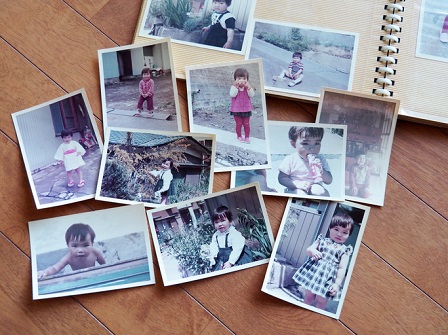What is Schema Therapy, and how can it help? Brisbane Psychologist Dr Anna Woodall provides a brief overview of Schema Therapy for clients.
- Have feelings of being unfulfilled or underserving, no matter how successful you are?
- Feel paralysed by the belief that you will never be able to make good decisions and reach your personal goals?
- Seem to always put others’ needs above your own, regularly second guess other people’s motives, or panic when you suspect that someone you love will leave you?
- Have an irrational lack of self-esteem or a sense of impending doom?
- Feel anxious at the thought of natural disasters, getting ill, being in an accident, or losing everything you have?
Why might you have these difficulties?
Problems like these might be due to the internal messages we tell ourselves and self-defeating patterns called Schemas.
For many of us, childhood was a challenging time. Perhaps …
- A parent had very high expectations of you or was emotionally distant.
- One of your parents was abusive, and the other was helpless.
- A parent was unable to provide you with a feeling of safety at home.
- Maybe you were regularly caught in the middle when your parents fought.
- One parent was sick or depressed and you had to care for them from a young age.
- A parent was overprotective or overindulged you.
- A parent criticised you or gave you the message that nothing was good enough.
- You were excluded, bullied and rejected by your peers.
Childhood experiences shape the way in which we view the world, ourselves, and others. Despite growing up and moving away from these situations, we often still carry the mark they left on us and repeat destructive behaviour patterns.
What is Schema Therapy?
Schema Therapy expands on some cognitive-behavioural treatments. It can help people make sense of their behaviour patterns, and why they are repeatedly triggered, in an effort to break free of them.
Schema Therapy is based on the view that we all have core childhood needs:
- To feel safe, have stability, nurture, and acceptance from others.
- A chance to develop autonomy, competence, and a sense of identity.
- The freedom to express our needs and emotions.
- To have the opportunity for spontaneity and play.
- To be provided with realistic limits and boundaries.
If there is a poor fit between the temperament a child is born with (eg their level of sensitivity, adaptability, emotional intensity) and their environment due to being abandoned, criticised, deprived, excluded, abused or overprotected, a child may develop Early Maladaptive Schemas.
What is an Early Maladaptive Schema?
Early Maladaptive Schemas are broad themes including our thoughts, feelings, behaviours, memories, and physical sensations, that determine how we relate to ourselves and others.
Eighteen Early Maladaptive Schemas have been identified that fall into the following five categories:
- Disconnection and Rejection – Feeling insecure in relationships, and difficulty trusting and connecting with others.
- Impaired Autonomy and Performance – Feelings of inadequacy and problems behaving independently and confidently.
- Impaired Limits – Difficulties with self-control and setting appropriate limits on your behaviour.
- Other-Directedness – Focusing on other’s needs over your own, and regularly seeking external approval and validation.
- Overvigilance and Inhibition – Often on the lookout for potential problems and dangers in your life, or a difficulty accepting yourself and expressing emotions.
Due to the human drive for consistency and familiarity, we feel a strong push to maintain these Schemas and will have a tendency to distort information to fit them.
For example, if we have come to expect that people will always reject us – when our partner or friend does not return our call straight away we might be quick to assume that they are unreliable or don’t care about us, which can quickly make us feel sad for ourselves or angry at them.
This push to maintain our Schemas also means that we might be attracted to people and situations that reinforce them.
Schemas and Coping Styles
We typically manage our Schemas in one of three ways: surrender, avoidance, or overcompensation. Below are examples of how someone might manage the Schema of ‘Failure to Achieve’:
- Surrender: By accepting that ‘I will fail’ I might do tasks in a half-hearted or haphazard manner.
- Avoidance: To avoid any painful reminders of my schema I might completely avoid work that challenges me, or procrastinate on tasks.
- Overcompensation: To hide and fight my schema, I might ceaselessly and tirelessly drive myself and become an ‘overachiever’.
Changing Early Maladaptive Schemas in Therapy
In contrast to Cognitive Behaviour Therapy (CBT), Schema Therapy may involve more discussions about childhood origins, more emphasis on core themes and coping styles (eg avoidance and overcompensation), and more emphasis on accessing different emotions in the therapy room in both creative and supportive ways.
The aim of Schema Therapy is to identify our schemas and coping strategies. Often we find that coping strategies that were developed in childhood were actually very adaptive for us back then, however given our circumstances have changed they have now become maladaptive.
Schema Therapy acknowledges that just understanding the past is often not enough to create real change in someone’s life. Therefore there are very practical elements in the therapy to assist in creating change in the here and now. Your therapist may employ cognitive, behavioural, and other experiential techniques to support you in this.
Given the longstanding nature of Schemas, therapy of this sort can often be delivered over a period of years; however aspects of the approach can also be useful when people are accessing short-term therapy.
If, upon reading this client’s guide to schema therapy, you feel it might be helpful in your situation, please do not hesitate to make an appointment with me.
 Author: Dr Anna Woodall, B Psych (Hons), D Psych (Clinical), MAPS.
Author: Dr Anna Woodall, B Psych (Hons), D Psych (Clinical), MAPS.
Dr Anna Woodall has a Doctorate in Clinical Psychology from the University of East London, and over 10 years of experience delivering psychological support and mental health research in Australia and the United Kingdom.
Dr Woodall is currently on extended leave.
To make an appointment try Online Booking. Alternatively, you can call Vision Psychology Brisbane on (07) 3088 5422.
References:
- Young, Klosko and Weishaar (2003). Schema Therapy. New York: Guildford Press.
- Young and Klosko (1993) Reinventing Your Life. New York: Plume.
